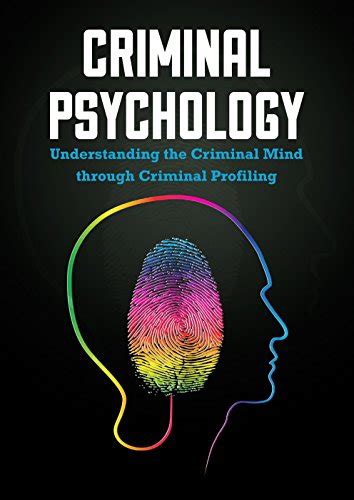Forensic psychology encompasses the intersection of psychology and the criminal justice system, delving into the complexities of the criminal mind and behavior. In this blog post, we will explore the fascinating world of forensic psychology, shedding light on the psychological factors influencing criminal behavior, the role of forensic psychology in criminal investigations, and the ethical considerations within this field.
We’ll take a deep dive into understanding the motivations and triggers behind criminal actions, the practice of forensic profiling to uncover offender characteristics, and the use of psychological assessments in criminal investigations. Additionally, we will examine the theoretical approaches in forensic psychology and the potential for preventive strategies through criminal behavior analysis.
Furthermore, we will also explore the psychological interventions for offender rehabilitation and the ethical considerations that guide forensic psychological research. By the end of this blog post, you will have a comprehensive understanding of the crucial role of forensic psychology in comprehending and combating criminal behavior.
Table of Contents
Understanding the Psychology of Criminals
Understanding the psychology of criminals involves delving into the complex and multifaceted factors that contribute to criminal behavior. This field of study combines the principles of psychology with the investigation and understanding of criminal motivations, triggers, and thought processes. By examining the inner workings of the criminal mind, experts seek to uncover the underlying psychological factors that lead individuals to engage in illegal and harmful activities.
Forensic psychology plays a pivotal role in unravelling the intricate web of psychological elements that contribute to criminal behavior. This specialized branch of psychology applies principles of clinical psychology to legal issues, providing valuable insights into the psychological dimensions of criminal activities. Through comprehensive assessments and evaluations, forensic psychologists aim to understand the cognitive, emotional, and behavioral patterns that drive individuals towards criminal conduct.
The study of the psychology of criminals also involves the exploration of various theoretical approaches that offer valuable frameworks for understanding and interpreting criminal behavior. Psychological theories such as the psychoanalytic perspective, cognitive-behavioral theory, and social learning theory provide important frameworks for understanding the underlying psychological dynamics that influence criminal actions and decision-making processes.
Ethical considerations are also integral to the study of criminal psychology. As researchers and practitioners navigate the complexities of understanding criminal behavior, it is essential to uphold ethical standards in research, assessment, and intervention. Respect for human rights, privacy, and confidentiality are paramount in conducting psychological assessments and interventions within the criminal justice context.
Exploring the Role of Forensic Psychology
Forensic psychology plays a key role in the criminal justice system, using psychological principles to understand the behavior of criminals and provide valuable insights for legal proceedings. The field involves not only understanding the criminal mind, but also assessing the mental state of individuals involved in legal cases, such as victims, witnesses, and suspects.
Forensic psychology professionals often work closely with law enforcement agencies, attorneys, and courts to provide expertise in areas such as witness credibility, jury selection, and assessing the mental competency of defendants. They may also provide therapeutic interventions for individuals involved in legal cases, such as counseling for trauma victims or rehabilitative programs for offenders.
One of the primary roles of forensic psychology is to conduct psychological assessments to aid in legal decision-making processes. This can include evaluating the risk of future criminal behavior, determining the mental state of individuals at the time of an offense, and providing expert testimony in court to help judges and juries understand the psychological factors at play in a case.
In addition to its role in criminal investigations and legal proceedings, forensic psychology also plays a valuable role in informing policy and developing preventive strategies. By understanding the psychological factors influencing criminal behavior, professionals in this field can contribute to the development of more effective intervention and rehabilitation programs, as well as policies aimed at reducing recidivism rates and promoting public safety.
Psychological Factors Influencing Criminal Behavior
It is often believed that criminal behavior is solely a result of external factors such as poverty, family environment, or social influences. However, psychological factors play a significant role in shaping an individual’s propensity towards criminal behavior.
One of the most prominent psychological factors is personality. Certain personality traits, such as impulsivity, sensation-seeking, and lack of empathy, have been linked to increased likelihood of engaging in criminal activities. This is often seen in individuals who exhibit traits of antisocial personality disorder or psychopathy.
Additionally, psychological trauma can also play a crucial role in shaping criminal behavior. Individuals who have experienced childhood trauma, neglect, or abuse may develop maladaptive coping mechanisms that lead to criminal activity as a means of escape or survival.
Mental illness is another vital psychological factor. The presence of untreated mental health disorders, such as schizophrenia, bipolar disorder, or substance abuse, can significantly impact an individual’s behavior and decision-making abilities, contributing to criminal actions.
Examining the Criminal Mind: Motivations and Triggers
Understanding the psychology of criminals is a complex and multi-faceted field that requires a deep dive into the motivations and triggers that drive criminal behavior. The criminal mind is often influenced by a combination of psychological, environmental, and social factors, making it a challenging area to study and understand.
Forensic psychology plays a crucial role in exploring the motivations and triggers behind criminal behavior. By analyzing the psychological state of offenders, forensic psychologists can uncover underlying factors that contribute to criminal actions. Through in-depth assessments and evaluations, these professionals can provide valuable insights into the thought processes and emotional triggers that lead individuals to engage in criminal activities.
Psychological factors such as personality disorders, trauma, and substance abuse can significantly influence criminal behavior. These underlying psychological issues often serve as powerful motivators for individuals to commit crimes, making it essential for forensic psychologists to thoroughly examine and address these factors in their assessments.
By examining the criminal mind and understanding its motivations and triggers, forensic psychologists play a vital role in developing preventive strategies and interventions aimed at reducing the incidence of criminal behavior. Through their expertise, these professionals can contribute to the development of effective rehabilitation programs and the implementation of targeted interventions to address the root causes of criminal actions.
Forensic Profiling: Uncovering Offender Characteristics
Forensic profiling, also known as criminal profiling, is a technique used by law enforcement to identify the characteristics of an unknown offender. This method involves studying crime scenes, victimology, and other evidence to create a psychological and behavioral profile of the perpetrator.
One of the key goals of forensic profiling is to uncover offender characteristics such as their personality traits, behavior patterns, and potential motives for committing the crime. By understanding these aspects of the offender, law enforcement can better narrow down their suspect pool and ultimately solve the case.
Forensic profiling relies on a combination of psychological theories and empirical research to create a comprehensive profile of the offender. This involves analyzing crime scene behavior, modus operandi, and crime scene signature to piece together a profile that can help law enforcement in their investigation.
It’s important to note that forensic profiling is not without its criticisms and controversies. Some experts argue that it is an unreliable and speculative technique that can lead to false accusations and wrongful convictions. However, when used ethically and in combination with other investigative methods, forensic profiling can be a valuable tool in uncovering offender characteristics and solving complex cases.
Psychological Assessment in Criminal Investigations
When it comes to criminal investigations, a psychological assessment can play a crucial role in understanding the motives and behavior of the offender. By delving into the offender’s mental state, personality, and emotional functioning, investigators can gain valuable insights into the individual’s mindset and potential risk factors.
Furthermore, a psychological assessment can aid in developing a profile of the offender, providing law enforcement with a deeper understanding of the individual they are dealing with. This can help to inform investigative strategies and prioritize leads, ultimately aiding in the apprehension of the perpetrator.
In addition, psychological assessments can also be instrumental in court proceedings, providing valuable information for prosecutors and defense attorneys alike. By shedding light on the mental state of the offender, these assessments can inform legal strategies and contribute to the fair and just resolution of criminal cases.
Overall, the role of psychological assessment in criminal investigations cannot be understated. It serves as a powerful tool for understanding and addressing the complex psychological factors at play in criminal behavior, ultimately contributing to the pursuit of justice.
Criminal Behavior Analysis: Towards Preventive Strategies
Understanding and analyzing criminal behavior is crucial in developing effective preventive strategies. By delving into the underlying psychological and social factors that contribute to criminal behavior, it becomes possible to identify potential triggers and motivations for illegal activities.
Forensic psychologists play a key role in this process, utilizing various assessment tools and techniques to evaluate the mental state and behavioral patterns of individuals involved in criminal activities. Through extensive analysis and profiling, they can identify common traits and characteristics among offenders, which can be used to create targeted intervention and prevention strategies.
It is important to recognize that criminal behavior is influenced by a complex interplay of individual predispositions, environmental factors, and societal influences. By understanding these multifaceted dynamics, forensic psychologists can work towards developing preventive strategies that address the root causes of criminal behavior, rather than simply reacting to its outcomes.
Ultimately, criminal behavior analysis serves as a vital component in the broader goal of crime prevention, offering insights and data-driven approaches to mitigate the risk factors associated with criminal activities and promote public safety.
Psychological Interventions for Offender Rehabilitation
When it comes to offender rehabilitation, psychological interventions play a vital role in the process of addressing the underlying issues that contribute to criminal behavior. Whether it’s through individual or group therapy, cognitive-behavioral interventions, or anger management programs, these psychological approaches aim to help offenders understand and change their thinking patterns and behaviors. By addressing issues such as trauma, substance abuse, and mental health concerns, these interventions seek to reduce the risk of reoffending and promote successful reintegration back into society.
One common psychological intervention for offender rehabilitation is cognitive-behavioral therapy (CBT), which focuses on identifying and changing thought patterns that lead to criminal behavior. By challenging and modifying these thoughts, offenders can learn healthier ways of coping with stress and managing their emotions, ultimately reducing the likelihood of engaging in criminal activities. CBT has been shown to be effective in treating various offenders, including those with substance abuse issues and violent tendencies.
Another important aspect of psychological interventions for offender rehabilitation is the provision of support and resources for mental health concerns. Many offenders have experienced trauma or struggle with mental health disorders, which can significantly impact their ability to successfully reintegrate into society. By addressing these issues through therapy and psychiatric treatment, offenders can begin to heal and develop more adaptive ways of functioning, reducing the risk of recidivism.
Overall, psychological interventions are crucial for offender rehabilitation as they provide the necessary tools and support for individuals to address the underlying factors contributing to their criminal behavior. By promoting insight, accountability, and positive behavioral change, these interventions play a key role in helping offenders lead law-abiding and fulfilling lives after serving their sentence.
Theoretical Approaches in Forensic Psychology
Forensic psychology is a fascinating field that combines the principles of psychology and the criminal justice system. One important aspect of forensic psychology is the theoretical approaches used to understand and analyze criminal behavior. These theoretical approaches provide insight into the motivations and triggers behind criminal acts, helping law enforcement and mental health professionals develop effective strategies for prevention and intervention.
One of the key theoretical approaches in forensic psychology is the psychodynamic perspective, which emphasizes the role of unconscious processes and unresolved conflicts in shaping behavior. This approach suggests that early childhood experiences and internal conflicts can influence an individual’s tendency toward criminal behavior. Understanding these underlying psychological factors can be instrumental in developing targeted interventions for offenders.
Another important theoretical approach is the cognitive perspective, which focuses on how individuals perceive, interpret, and process information. This approach helps forensic psychologists understand the cognitive processes involved in criminal decision-making and behavior. By examining the thought patterns and belief systems of offenders, mental health professionals can identify cognitive distortions that contribute to criminal acts and develop cognitive-behavioral interventions to address these distortions.
The social learning theory is also a fundamental theoretical approach in forensic psychology. This perspective emphasizes the influence of social environments, role models, and reinforcement on the development of criminal behavior. By examining the social context in which criminal behavior occurs, forensic psychologists can identify factors that contribute to criminality and develop prevention programs that target these environmental influences.
Ethical Considerations in Forensic Psychological Research
When studying the delicate and complex nature of criminal behavior and the criminal mind, it is crucial to consider the ethical implications of conducting research in the field of forensic psychology. This specialized area of psychology involves applying psychological principles and research methods to criminal justice and the legal system, raising important ethical considerations that must be carefully thought through and addressed.
One of the key ethical considerations in forensic psychological research is the importance of informed consent. Researchers must ensure that all participants fully understand the nature of the study, the potential risks and benefits involved, and that their participation is voluntary. This is particularly important when working with vulnerable populations such as incarcerated individuals or individuals with mental health disorders, who may be more susceptible to coercion or undue influence.
Confidentiality and privacy are also critical ethical considerations in forensic psychological research. Given the sensitive nature of the information gathered in these studies, it is essential to protect the confidentiality and privacy of research participants. Researchers must take all necessary precautions to safeguard the identities and personal information of individuals involved in their studies, and to ensure that data is stored and handled in a secure and responsible manner.
Additionally, avoiding harm is a fundamental ethical principle in forensic psychological research. Researchers must take great care to minimize any potential risks or negative consequences for their participants. This includes carefully considering the potential impact of the research on individuals’ psychological well-being, and taking steps to mitigate any adverse effects that may arise as a result of their participation.





